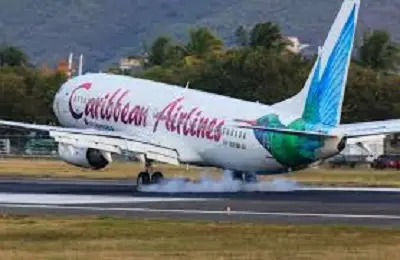An emergency landing by a Caribbean Airlines (CAL) aircraft earlier this week has ignited fresh debate over the airline’s safety standards, with the Trinidad and Tobago Airline Pilots Association (TTALPA) raising concerns about recurring technical issues. The airline, however, has strongly rejected any notion that passenger safety is at risk.
Emergency Landing and Official Response
Flight BW1541, en route from Tobago to Trinidad, was forced to return to Piarco International Airport after pilots detected an irregularity in the left engine’s fuel supply. The precautionary decision to initiate an emergency landing saw passengers assuming brace positions before the aircraft touched down safely.
Finance Minister Colm Imbert, addressing the situation in Parliament, clarified that the issue stemmed from inaccurate fuel measurement rather than a direct mechanical fault. He assured the public that the affected aircraft had been taken out of service for a full technical review, and that the crew involved had been temporarily relieved of duty as part of routine investigative procedures.
TTALPA Raises Alarm Over ATR Fleet
In a statement following the incident, TTALPA claimed that Caribbean Airlines’ ATR fleet has been plagued by safety concerns for years, citing multiple recent incidents that, in their view, signal deeper operational challenges. The association is demanding an urgent meeting with CAL’s leadership and aviation regulators to assess whether maintenance practices and operational protocols need to be strengthened.
Caribbean Airlines Dismisses Safety Concerns
Caribbean Airlines swiftly dismissed TTALPA’s warnings, calling them “unfounded and alarmist.” The airline stressed that it adheres to both local and international safety standards, undergoes rigorous audits, and holds Federal Aviation Administration (FAA) certification for aircraft maintenance and repairs.
“Caribbean Airlines maintains the highest safety standards and follows strict regulatory requirements,” the airline’s statement read. “We reject any claims that compromise our commitment to passenger safety.”
CAL also pointed out that, following the emergency landing, all industry-standard response protocols were followed, including the immediate removal of relevant personnel from active duty and full cooperation with investigators.
Balancing Safety and Public Confidence
While Caribbean Airlines maintains that its track record speaks for itself, TTALPA’s repeated calls for intervention raise questions about whether more stringent oversight is required for the ATR fleet. The airline industry is no stranger to safety concerns, and public confidence in regional carriers relies on transparency and accountability.
With an investigation underway, aviation experts will be watching closely to see whether the issue with BW1541 was an isolated event or part of a larger trend that demands further scrutiny. In the meantime, passengers can only hope that the airline’s assurances hold firm in the face of growing criticism.






